
Local newspapers had begun reporting earlier this year that a $21 billion deal with Qatar had been finalised. The deal, then, and the ship now, raise several concerns, including the specifics of the pricing formula and the Iran-Pakistan pipeline — the cheaper alternative that remains a pipedream. My concern is somewhat different and, in a sense, prior: to remind ourselves of the distance we have traversed since the 1950s when natural gas exploitation began, and to use this example to make us question how we are using our resources.
Consider President Ayub Khan’s statement while inaugurating natural gas drilling operations at the Zeal Pak Cement Factory in Hyderabad in May 1959: “We have so much natural gas that we do not know what to do with it. If you are going to live for 300 years you will still find this gas coming out.” Leaders’ statements may be reflective of and also constitutive of policy. They may also, however, be offered as the ‘official’ stance behind which lurks ‘reality’. Be that as it may, during periods of military rule, there is a case to be made for leaders’ statements as policy. A quick glance at the 1960s’ news archives shows the intensity of government encouragement for natural gas usage; one cannot help but be struck by the sense of promise attendant upon the discovery of natural gas. After all, this was the 1960s, a time when recently decolonised nation-states eagerly set about ‘developing’; a time when the ‘Green Revolution’ was spreading in the global South; and a time that Pakistan’s official narrative brands the ‘Decade of Development’. Here is a sampling:
In November 1955, the local press celebrated the completion of the Sui-Karachi pipeline. Sui Gas was hailed as “the great friend of industry”, “the new source of power for better living” (Dawn, November 9, 1955). Stewarts and Llyods Ltd. proudly announced a contribution of 42,000 tonnes of steel pipe, as did Pye Ltd. Buckwell and Co. Ltd. which were proud that the “Sui Gas Pipeline to Prosperity” had been completed with Caterpillar Equipment. Shahnawaz Ltd. showed an image of “the magic flame” and offered consulting for “all your requirements in gas”. A column titled, “Story of Miracles” painstakingly detailed the role of gas in making the “modern man”: “Modern man is awakened by an alarm clock whose spring or electric motor was treated by gas. He bathes and shaves with gas heated water, dresses in textiles whose processing and cleaning depend on gas. He eats a gas cooked breakfast, reads a newspaper whose ink was dried by gas […]”. The provision of gas in Pakistan heralds “nothing but clear skies ahead for the continuing miracle of stored sunshine […] the end is not in sight. The pipedreams of yesterday are realities of today and tomorrow.”
All this is not being offered as historical trivia. What does it say about ‘the policy mindset’ of the country that the president could quote a figure of 300 years in 1959? The natural gas story, from giddy excitement at its discovery to despair over its depletion, is not, must not, be construed as a story of progressive use, depletion and population increase. We can choose to learn any number of lessons from this 60-year period, but I would argue that the most valuable ones are those of irresponsible, uninformed or careless policy decisions — lessons that compel us to think in terms of responsibility and accountability. Population or its increase is not the crisis.
Similarly, we can choose to point fingers in many directions. Many Pakistanis today point to General Pervez Musharraf’s policies of subsidising natural gas use in power plants and cars, and electrifying villages under the Khushaal Pakistan Programme. Several issues arise: what do we mean when we speak of Khushaal Pakistan? Is Khushaal Pakistan the one that quickly eats up its resources, is satisfied with immediate inflated growth figures, and turns a blind eye to temporal horizons longer than a few years? Or is Khushaal Pakistan the one that plans its resource use with a care to its stability now and its sustainability and existence in the future? Who are we, sitting in the comforts of our well-heated and cooled, thoroughly electrified homes, to pass judgment on the folly of electrifying villages?
Recently, the federal minister for water and power (and for defence), has made several public statements about a “national habit of wasting energy”. But what about our policymaking habits? (Of course, most of our policy is also very upper/middle class, very top-down) What is the temporal horizon for policymakers? This is not an easy question to answer and it is not specific to Pakistan. It is a complex issue often raised with regard to democratic governments — the democratic cycle, many say, is such that governments make policy knowing they have to please/satisfy/develop/grow/advance only until the next election.
Finally, and this is a very relevant question in a time when ‘public policy experts’ (self-styled and otherwise) throng the annals of academia and government, what of the policies that cause crises? Crises — at least the ones at issue here — are man-made. They may be the result of lack of foresight, of ignorance, of indifference or of irresponsibility. The conversation shouldn’t end with finger-pointing and blaming. But that is where it must begin if we are to learn from this history and do it differently and better. We will take a crisis as its own explanation at our own peril.
Published in The Express Tribune, May 2nd, 2015.
Like Opinion & Editorial on Facebook, follow @ETOpEd on Twitter to receive all updates on all our daily pieces.

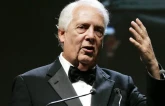



1734951821-0/Copy-of-Untitled-(88)1734951821-0-270x192.webp)

1734899716-0/image-(15)1734899716-0-270x192.webp)
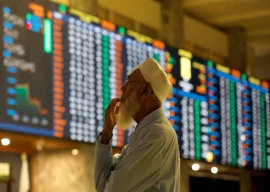
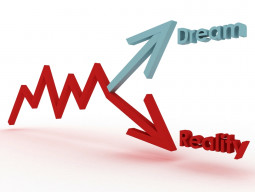
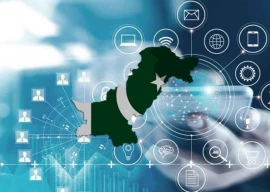



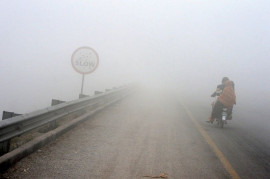

1734778885-0/Untitled-(10)1734778885-0-270x192.webp)






COMMENTS (11)
Comments are moderated and generally will be posted if they are on-topic and not abusive.
For more information, please see our Comments FAQ